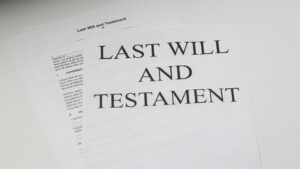In a previous blog post, we had discussed the differences between informal and formal probate and delved into the nuances of informal probate in the state of Massachusetts.
As a beneficiary, heir, or executor to a decedent, it is important for you to know if and when a probate is necessary.
Unfortunately, most people are not well-versed in inheritance and asset division laws to be followed after a loved one’s demise.
But we’re here to coach you about exactly when a probate is necessary and the scenarios you can make do without probate?
For those reading about it for the first time, let’s start with a quick introduction to probates.
What Is A Probate?
Simply put, probate is a legal process to distribute a decedent’s assets amongst their beneficiaries and heirs. If there happens to be a will, it will have to be followed. Otherwise, the division will have to be done as mandated by state law. All taxes and debts incumbent on the decedent are cleared before transferring any assets to their heirs.
When Does A Probate Start?
As soon as a person dies, their assets are classed as their estate, unless those assets are jointly owned. If there happens to be a will, the assets are distributed accordingly after a judge verifies it.
For those who didn’t leave behind a will, also known as intestate, the court decides the decedent’s rightful beneficiaries.
What Are Non-Probate Assets?
Many assets fall under the category of non-probate assets. The name is self-explanatory – these are the assets that do not need to go through a process of probate. Generally, these consist of shared assets or assets payable on death.
Assets with joint ownership, such as a house owned by spouses, are not eligible for probate. The ownership of the house passes to the surviving spouse after their spouse’s passing. This is known as the right of the survivor.
Other shared assets like community-owned property are also not eligible for probate; the ownership simply passes onto the other property holders. It is only the decedent’s share that is transferable.
Assets that are claimable on death, such as life insurance or an investment account with a payable-on-death condition, also do not require a probate. For example, if the decedent had an IRA, their spouse would be eligible as a beneficiary. If there happens to be no beneficiary, the probate court will make a judgment.
Also exempt from probates are assets in a living trust, annuities, and pension benefits in the decedent’s name. Living trusts become irrevocable after the grantor’s death. Assets under the ownership of a trust do not need a probate.
When Is Probate Necessary With A Will?
Even if the decedent left a will, the property and assets are still in their name. For valid transfer of assets to beneficiaries, there has to be a legal transfer of title for the property and assets in their name. Until the will is probated, the assets’ transfer to the beneficiaries is still unclear and not legally ratified.
So what are the cases where despite having a will, a probate is required?
Firstly, if there are problems with an existing will, such as mistakes, tampering, compromised integrity of the will, or the decedent was not in a sound state of mind while drafting the will.
Suppose the decedent has all the assets in their name. Or if the decedent’s beneficiaries in the will have passed away before them. In that case, their estate must be probated to legally transfer the assets to their beneficiaries and heirs
Though there are instances where a probate is not required for a will, it surely helps to clarify the process and prevent any challenges with implementing the will.
How to Avoid Probate in Massachusetts?
If you do not want your estate to go through a probate, you can take some steps to avoid it. Many people choose to avoid it for privacy purposes or to avoid extra fees such as property taxes for example.
One way to circumvent a probate is to set up a revocable living trust. Under the trust, all assets are placed within it but can be used by the grantor within their lifetime. The grantor can name trust beneficiaries who will receive the assets after their death through a trust document.
Life insurance policies are also exempt from probate, as the death benefit is passed on to the decedent’s beneficiaries directly.
Other savings plans like payable on death policies and some retirements and pension plans pass the funds to the beneficiary named by the owner.
Jointly owned property is also not liable for a probate process. After one owner’s death, the ownership passes to the other owner.
What Is A Small Estate Probate?
Small estate probate is a shortcut to the probate process. If someone is looking to avoid the lengthy process, they can opt for the small estate probate, also known as summary probate.
It’s a more straightforward routine that allows a decedent’s beneficiaries to transfer assets quickly, bypassing the typical probate process. In this case, they will not need to have the court oversee the transfer. They will simply need to file a few forms and wait for a certain time before transferring the assets.
Let’s look at some of the scenarios where this is applicable.
Suppose the decedent left behind no real estate and the value of their total assets less than $25000 (plus the worth of one vehicle). In that case, a representative can act as the executor and file the will.
If the value of the assets does not exceed exempt property, funeral costs, family allowance, and the last illness’s expenses, then the small estate allowance is also applicable.
The executor must use the summary probate procedure and file their details, their relationship with the decedent, the details of all beneficiaries, and the inventory of the decedent’s assets. They will attach the death certificate of the deceased and submit it to the court for notification.
They must clear all debts and taxes of the decedent. As a closing statement, they must include a statement showing they have cleared all dues and distributed the assets among all beneficiaries. This must be sent to all beneficiaries and known creditors.
Attorney Mucci has been providing expert legal counsel for Massachusetts residents for years, fighting for their due justice. If you, or anyone you love, requires guidance regarding real estate probate, don’t hesitate to check out or website or to contact us for a free consultation.


